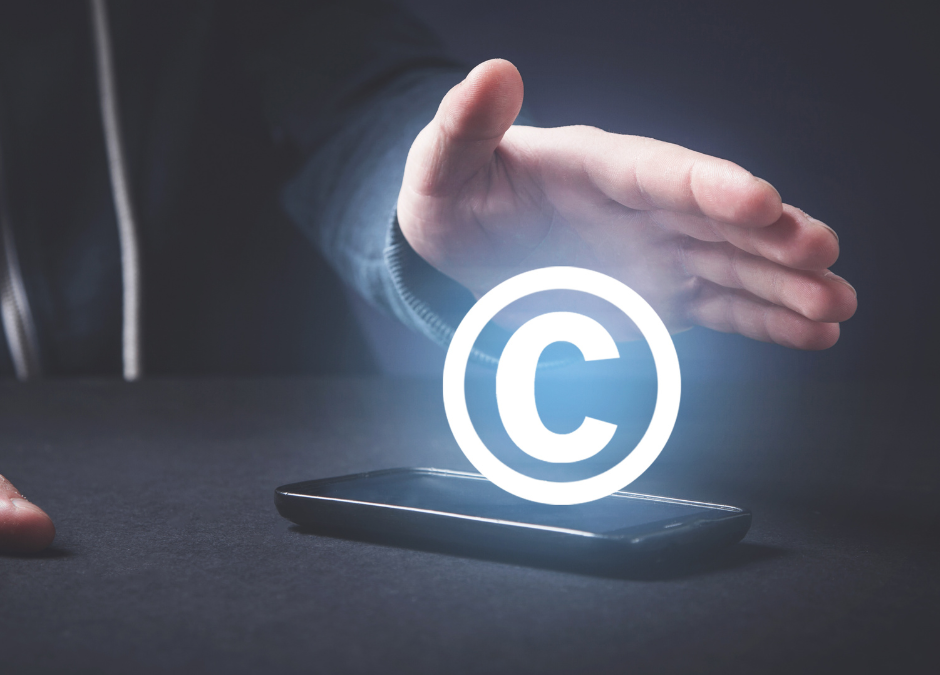After the Thanksgiving he’s-in, he’s-out debacle over at OpenAI, it would make sense why the A.I. world would have hoped for a nice, relaxing close to 2023.
There was a certain promise of peace to be found in the fact that U.S. legislators were going to enter their winter recess, which is like a paid public servant’s version of a schoolchild’s winter break.
However, the holidays were not problem-free for the industry.
For one, the New York Times sued OpenAI and Microsoft for copyright infringement, according to the Wall Street Journal. (The New York Times also reported, or self-reported, this lawsuit, which for some reason may strike a reader as kind of odd. It’s a bit like that Seinfeld episode with the guy named Jimmy who refers to himself in the third-person.)
It sets a precedent for 2024, where copyright law may become one of the defining issues in A.I. This may have a significant impact on businesses utilizing A.I., as certain tools could face limitations.
Illustrating the Copyright Problem with ChatGPT
It is officially 2024, so ChatGPT is now more than a year old.
Well, you would have to count its November 30, 2022 release date as its “birth” date. Of course, it had been in gestation for a while before then, while developers trained it to be ready for its public debut.
Since then, ChatGPT has rapidly grown from a wee little baby to the talk of the town. Because of its popularity with the Internet-connected masses, this chatbot has become the top dog in the world of chatbots.
But how did it come to be so?
ChatGPT’s Journey
Well, first of all people were excited by the impressive range of ChatGPT’s responses.
For an epic poem on the subject of the Milky Way’s sailors, also known as astronauts, expect the generation and delivery of such a poem within just a minute or two.
For a resume that made you look like the ideal candidate for whatever position you were seeking, then it could do that.
If you were a lawyer who wanted a court filing written quickly with cited cases, then ChatGPT would write you such a thing. However, as one lawyer found out, the chatbot would simply invent fictitious court cases and use those as citations, which points to the Achilles heel of A.I.: it lacks common sense. It recognizes a citation as an attachment to a piece of writing, but it can’t truly distinguish between a genuine citation and a fake one. It’s all just words to it, and little else.
This was all made possible by training ChatGPT on a mind-boggling amount of writing culled from the Internet. Some of this included copyrighted works, which copyright holders such as individual writers and news publishers took notice of.
They responded by levying lawsuits against the A.I. companies, with the hope of stopping the practice of using the copyrighted materials in training. That, and large royalty payments of course.
The Potential Upshot for Business Owners: Possible Copyright Limits on Existing Chatbots
What this all ultimately means for business owners is that chatbots will likely face a number of limits if the lawsuits end up in the publishers’ favor.
If we require tech companies to make substantial payouts to every aggrieved copyright holder, most of them will likely accept the burden and restrict their training sets.
The consequence of this is that generative A.I. will develop much more slowly because the available training data is much more restricted.
This extends beyond just writings, as images can also have copyright protection.
Day-To-Day Business Operations While Cracking Down on Copyrights
For businesses that use generative A.I. on a daily basis, this can mean that A.I. will not develop at as rapid a rate as it had been. In fact, it may actually end up taking a step or two down in quality, as generative A.I.’s range of responses may become limited so that copyrighted material is not included in the content.
Of course, the alternative is that a significant majority of the courts side with the tech companies on this issue. A few things will happen here. The first is that many would-be litigants will back down. If the odds are slim of winning a copyright infringement lawsuit, then many will consider any potential legal costs to be a waste.
If the situation indicates that profits surpass any legal costs linked to dealing with occasional copyright lawsuits, major tech companies will undoubtedly choose to provide higher-quality generative A.I. products.
In that case, it will mostly be business as usual, with tech companies and their benefactors enjoying the results of rapid progress unencumbered by any pesky big lawsuits.


Recent Comments